Protests Follow Suicide of Woman Worker at Factory Gate
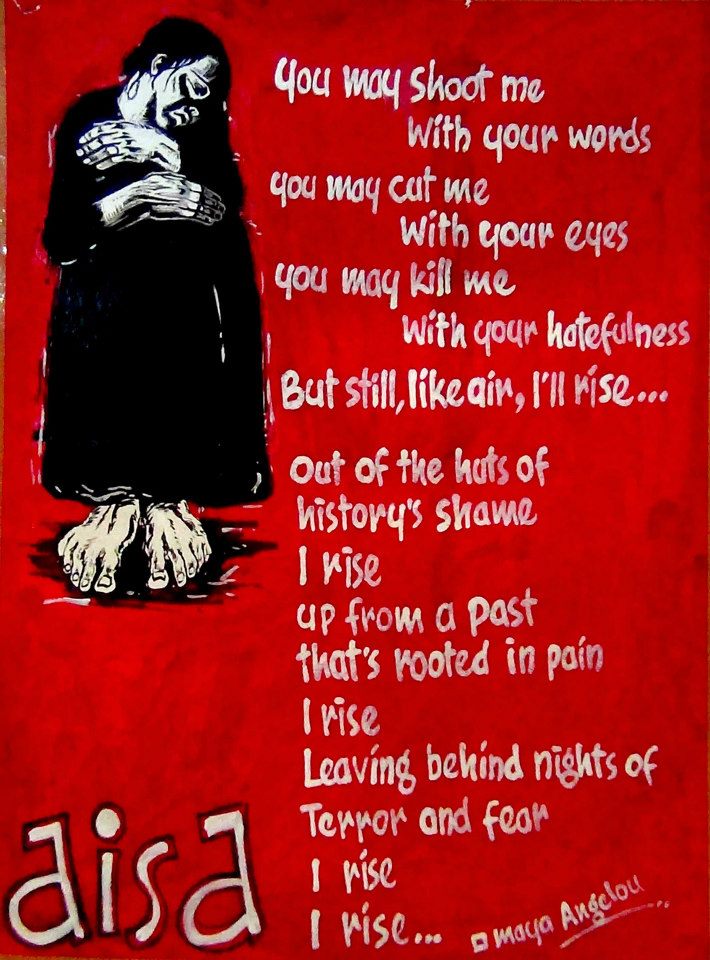 Rakhi Sonkar, a single mother of 3 small kids was terminated by managers of Swiss Auto Pvt Ltd on the pretext of being a few minutes late. After trying in vain to persuade the factory authorities to take her back on the job, she consumed rat poison at the factory gate, in full view of fellow workers and the police. Before doing so, she publicly names the supervisor and other factory authorities who pushed her to take this extreme step.
Rakhi Sonkar, a single mother of 3 small kids was terminated by managers of Swiss Auto Pvt Ltd on the pretext of being a few minutes late. After trying in vain to persuade the factory authorities to take her back on the job, she consumed rat poison at the factory gate, in full view of fellow workers and the police. Before doing so, she publicly names the supervisor and other factory authorities who pushed her to take this extreme step.
She died in hospital two days later. Her brother recounted that even the doctor at the hospital slapped him – a reminder that workers cannot expect dignity and respect at their workplace, or even when they accompany terminal patients to a hospital!
“There were three policemen at the factory gate, but they simply watched while she threatened to kill herself and drink the rat poison. She fell over and they acted only after she showed no signs of movement,” said a 25-year old worker, who worked in the crimping section with Rakhi.
He and other workers alleged that the factory owners had fired Rakhi for supporting Amarjeet Singh, a 22-year-old former line manager at Swiss Auto in contesting his dismissal at the Deputy Labour Commissioner’s office in 2013.
Further, she had filed a complaint against the Wazirpur labour court alleging mistreatment on factory premises, they said.
“Rakhi helped me get my employment reference letter from the factory when I challenged my termination at Deputy Labour Commissioner’s office. She came to the DLC office during my hearing. She was under tremendous pressure and faced verbal abuse and she had complained about this at the DLC office three weeks back,” said Amarjeet Singh. He recounted that he had started working at the factory when he was 14.
“I worked there for six years and rose to the position of line manager. I objected to our working conditions — permanent employees were being dismissed on flimsy grounds, a five-minute delay in arriving at work meant losing a day’s wage, we were not allowed to go to the toilet for more than a few minutes a day, many workers were not being paid provident fund. When labour inspectors visited the factory, owners would not allow us to speak to them,” recounted Mr. Singh. Women workers in Wazirpur say that they are not allowed to visit the toilet when needed, even when they are having their monthly period.
Rakhi was persecuted and eventually thrown out of her job because she spoke up for the rights of other workers. Following her suicide, workers at her factory protested spontaneously. Women workers lay down on the main road near the factory gate, blocking traffic, demanding arrest of the factory authorities whom Rakhi had named as responsible for her suicide. When chased by the police, they would get up and occupy another portion of the road. The police brutally lathicharged the workers, injuring several of them, and detaining them in the police station.
AICCTU held several demonstrations and gate meetings at the factory gate, demanding justice for Rakhi, arrest and punishment of the factory authorities implicated in her suicide, compensation for her family and care of her children, and strict implementation of all labour laws in all factories in the Wazirpur Industrial Area. Every time, the police attempt to prevent activists from distributing leaflets and holding gate meetings, and try to forcibly disperse workers who gather at such meetings. The episode is a comment on the state of industrial democracy in the national capital.
In another episode in JNU, a woman sanitary worker, employed earlier in Koyna Hostel through SE Services, was not been taken back on work after she went on leave due to pregnancy. Despite the fact that the worker has the ESI documents, which shows her to be fit for work from date- 12 December-2013, the Dean of Students office, particularly the Sanitary Inspector has refused to take the worker back on duty. This is a blatant violation of the Maternity Benefit Act, 1961. After this case, another woman worker in an advanced state of pregnancy refused to avail of the maternity leave she was sanctioned, for fear that she would lose her job. AISA activists took up these cases and have been struggling in support of the rights of workers on the JNU campus. In solidarity with the woman worker, and also in protest against the non-payment of monthly salary, workers stopped work for a day. The contractor was forced to make the monthly payment to the workers, while the crucial issue of taking back the woman worker still remains unsolved. It is as though the university administration are implying that the workers must refrain from bearing child in order to save an already underpaid job!
(This report was published in ML UPDATE, 21 – 26 MAY 2014)
(With inputs from a news story titled ‘Activists demand justice for woman who killed self’ by Anumeha Yadav in The Hindu, May 15, 2014, and Comrade Abhishek of AISA, JNU)
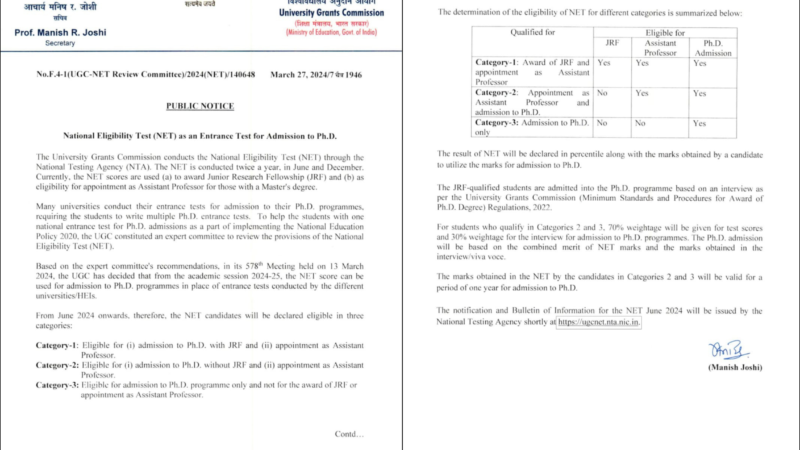
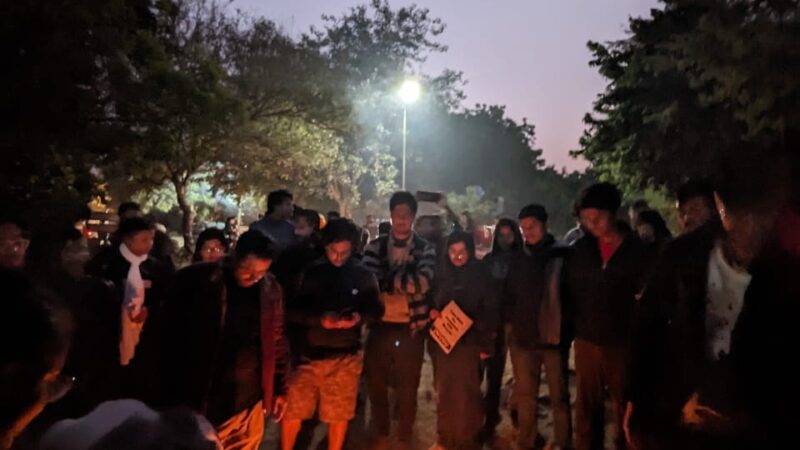
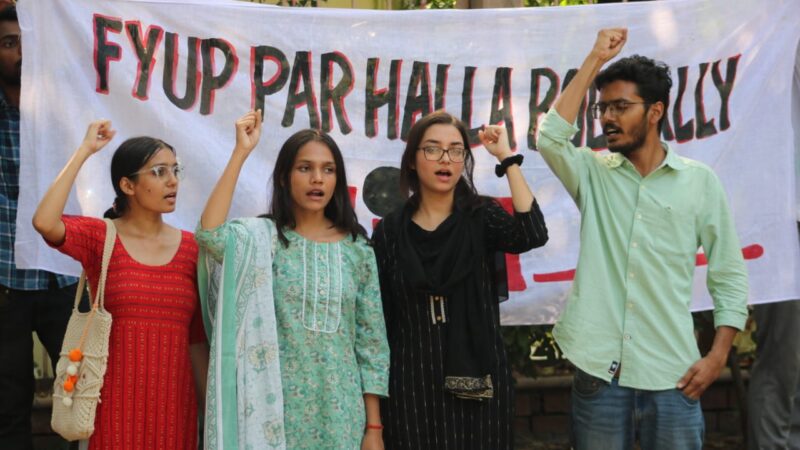
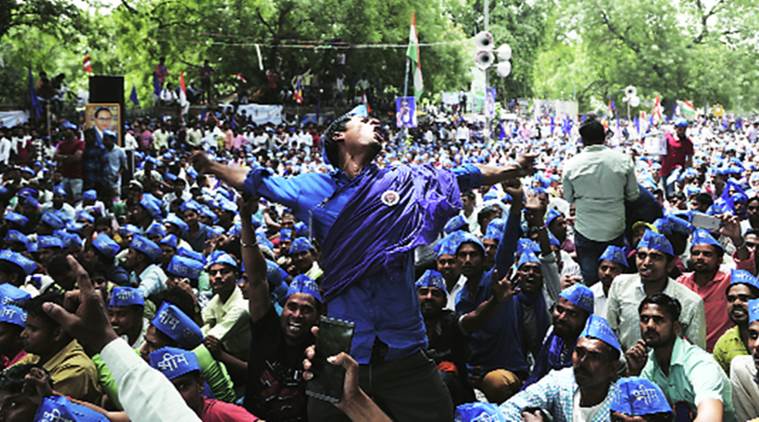
This is a very good tip particularly to those fresh to the blogosphere.
Simple but very accurate info… Appreciate
your sharing this one. A must read post!